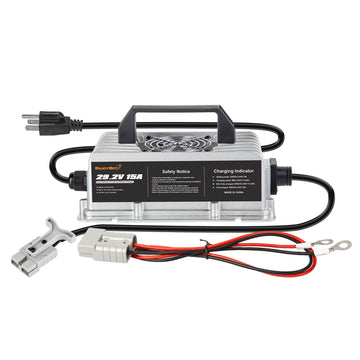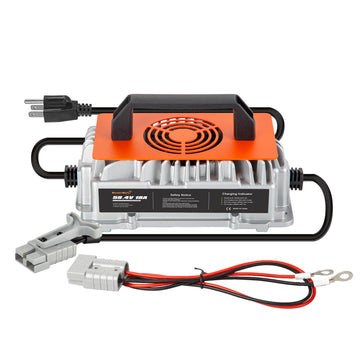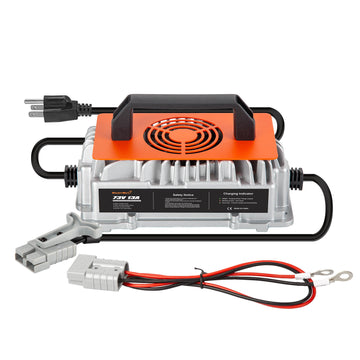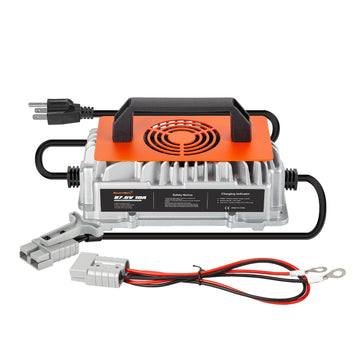Why BMS is important to battery
Why BMS is important to battery

The Battery management system (usually called BMS) focuses on battery safety. The tasks of BMS is including the battery's voltage and the battery's current control, the cybersecurity, the thermal management solutions, and the fire protection. We discussed the main battery-related risks in this blog post and methods that BMS can overcome them.
What is BMS?
The BMS is a Management System and a balancer in the battery. It is a technical and intelligent component of a battery bank, responsible for advanced monitoring and management work. This is the key to the battery and manages the performance, charge rates, lifespan, and safety of the battery.
What is the feature of a Battery Management System?
The most important function of the BMS is to safeguard the cells from damage caused by being overcharged and over-discharged. Additionally, the BMS can calculate the remaining capacity, monitor the battery temperature, and monitor the battery’s health and safety by checking for loose connections and internal short circuits. The BMS is also able to balance the charge between cells to maintain each cell functioning at the maximum capacity.
If BMS detected any unsafe condition, it will shut the battery down to protect the battery cells and the user's safety.
Thus, BMS is the key to rechargeable batteries. This technical function is quite complicated and sensitive and users require attention and careful handling of the battery. All of its features are designed to get the most use out of the battery over the longest period of time.
How Does a Battery Management System Work?
The BMS helps boost the battery's lifespan and its working performance by checking the battery charging status and state of operational health. By estimating the energy and power states and balancing cells inside a battery pack, it can fully utilize the potential of the battery and, as a result, your battery energy storage system.
Depending on the composition, lithium batteries can be quite sensitive to unstable surroundings. Exceeding the limits can be critical for a battery and may lead to battery failure and premature death.
The BMS is well-equipped to predict potential hazards and protect both the battery and users. A complete lithium battery must have a BMS safety system to prevent short circuits, ground faults, and thermal runaways. Therefore, the BMS provides a security system to transmit secure data and defends your battery storage system from risks.
the BMS can operate and manage the battery system and would react instantly to any unstable changes or threats. This helps to avoid premature battery replacement and expensive repair fees.
In this blog, we pay special attention to the lithium-iron phosphate (LiFePO4) battery as it is the most popular among the now marketing. This type of battery is quite safe, although, it is sensitive to extreme temperatures, overcharging, and constant lack of charging. But you don’t need to worry about it, the BMS can provide help and handle these issues.

Voltage and current control
To control the current and voltage of the battery, the BMS provides over-current and over-voltage protection during charging and to avoid under-voltage during discharging the battery. Usually, each type of battery has suggested current and voltage limits for charging and discharging. If exceeding these parameters may lead to oxidation and a short circuit, which can damage the battery or shorten its lifespan. In the worst case, this might be leading to an explosion, fire, or electric shock.
Typically, before that risk happens, the BMS data will analyze and monitor the battery and give further actions to control the current, voltage, and state of charge. If the battery deviates from the permissible values, the BMS will immediately break out the circuit and stop charging or discharging the battery. BMS can also warn users about possible issues with the battery.
For the charging, users can use a constant-voltage constant-current battery-charging method to carry out over-current and over-voltage protection. While charging your batteries with a constant current until batteries reach a certain voltage level. Alternatively, when charging the battery with constant voltage while the current drops. The charging is complete once the current is at its highest level.
Thermal management
Thermal management is one of the most important LiFePO4 battery safety precautions for BMS. It handles heating, cooling, and air conditioning and has battery temperature control. Efficient Li-ion batteries are vulnerable.
That's why every lithium battery featured a BMS. Many battery users may not know that all different types of batteries would be affected by damage or shorten their lifespan during extreme weather or temperatures. However, the BMS batteries can prevent this and keep them in a safe condition.
Acceptable temperatures for lithium batteries are:
Operating Temperature (Charge) 0~50℃ (32℉~122℉)
Operating Temperature (Discharge) -20~60℃ (-4℉~140℉)
Operating Temperature (Storage) -10~50℃ (14℉~122℉)
The BMS thermal management system could help to check that the battery's temperature is within the limit range. To measure the temperature in and around the battery, users can use temperature sensors or thermistors — semiconductor thermal resistors.

How does a BMS protect a battery?
The BMS detects deviations from certain values and takes immediate action to protect the battery. For instance, a BMS can use thermistors and thermal fuses to prevent the risk of overheating during battery operation. If the temperature rises too high, they will break the circuit and disconnect the battery.
Most of the latest BMS use negative temperature coefficient (NTC) thermistors. They are very sensitive and can detect any changes in resistance with high speed and accuracy.
The thermal BMS focuses on the battery when charging and discharging. it would track the inside temperature of the battery to protect it from thermal runaway and ignition.
Additionally, the BMS can also safeguard batteries against unfavorable environmental conditions so lithium batteries are typically very sensitive to temperature drops because of this function. Users need to charge or discharge them at a specific temperature (see the operation temps above). Exceeding the limit may cause battery senescence, power outage, and complete shutdown.
The thermal management system would respond to any emergency. It adjusts the temperature or shuts down the charger by cooling batteries; fans; or heating, ventilation, and air conditioning (HVAC) systems.
Another function implemented in BMS is heat dissipation. The system uses it to remove excess heat generated by electrochemical reactions in the battery. Convection as well as liquid and air cooling are used in the process.
Besides the battery, the thermal management of electronics involved in the BMS solution (such as thermistors and thermostats) can defend both the system and the user from potential thermal hazards.
Fire protection
The chance of a lithium battery catching fire is almost non-existent, but sometimes the worst may be happening unless BMS or sensors are malfunctioning or broken. In this case, no measures will be taken to protect the battery after the system fails, resulting in a runaway battery. However, this won't happen in regular operations.
That's why the lithium batteries of built-in BMS are the most popular today because it is safe, stable, and reliable. Especially the Enjoybot batteries, engineers strictly detected the parameters, specifications, packaging, components, and structures of these batteries before leaving the factory.
How to avoid damage to lithium batteries
Correct installation, usage, maintenance, and storage can avoid damage to lithium batteries. Operation within current, voltage, and temperature restrictions can prevent your lithium battery from overheating or damage.

Conclusion
Both batteries and their users can be susceptible to dangerous reactions caused by chemical battery types.
The BMS is one of the most potentially hazardous solutions. That is why it is so critical to have strong safety protection in batteries.
BMS can predict and neutralize a range of lithium batteries' menaces, such as the following common safety challenges:
Under- and over-voltage
Over-current
Extreme temperatures
Self-ignition
Besides, the BMS can also resolve a range of other issues connected with security, like cyber threats and loss of privacy.














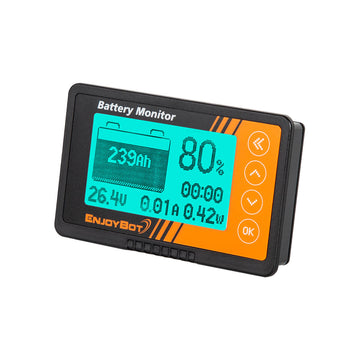

![[Upgraded Version] Enjoybot 14.6V 20A Waterproof Mountable LiFePO4 Lithium Battery Charger For 12V LiFePO4 Battery](http://enjoybotbattery.myshopify.com/cdn/shop/files/14.6V_20A_Waterproof_Battery_Charger_1_360x.jpg?v=1752565609)
![[Upgraded Version] Enjoybot 14.6V 20A Waterproof Mountable LiFePO4 Lithium Battery Charger For 12V LiFePO4 Battery](http://enjoybotbattery.myshopify.com/cdn/shop/files/14.6V_20A_Waterproof_Battery_Charger_2_360x.jpg?v=1752637374)


